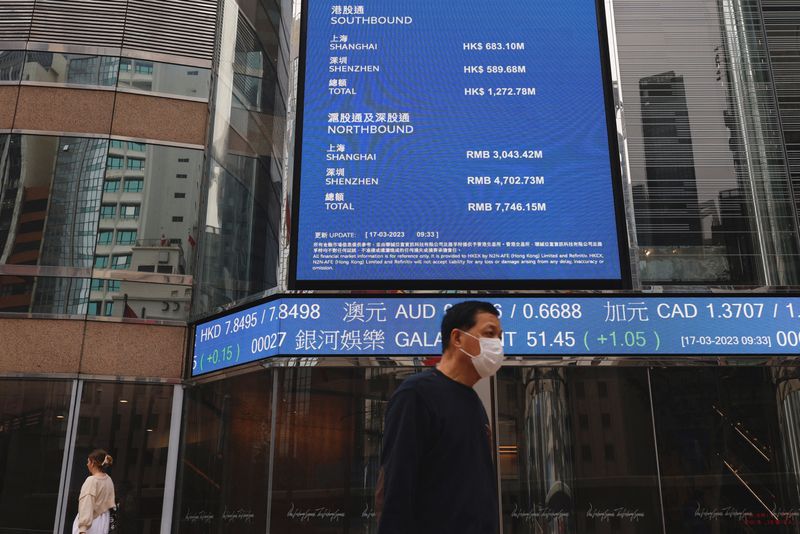By Ankur Banerjee and Tom Westbrook
SINGAPORE (Reuters) - Foreign investors returning to China's recuperating stock markets say spending plans announced on Tuesday are not enough to turn battered sentiment around, and the main reason to keep buying shares for now is because they are cheap.
Money managers hunting for bargains have been trickling back into mainland stocks since February, after China replaced its stock market regulator and tightened rules around speculation, leading to a sharp but fragile recovery in the market.
Few had held out hopes the National People's Congress (NPC), China's rubber-stamp parliament, would unleash a torrent of cash big enough to buoy markets and the mood right away.
But those expecting solid spending plans to reach a growth target of 5% were disappointed as authorities stuck to a familiar script about managing risks in the property sector and municipal debt and spurring "worry-free consumption".
China plans to run a budget deficit of 3% of economic output, down from a revised 3.8% last year, belying the fiscal shot-in-the-arm some had hoped for to fuel a recovery.
"Investors need to see policies that could improve governance and final demand, but neither seem to be on offer so far at the NPC," Ken Peng, head of investment strategy in Asia at Citi Global Wealth, said in an email to Reuters.
Mainland equities were steady on Tuesday, helped by signs of state-backed buying, and Hong Kong's Hang Seng fell 2.6%. The yuan held its ground.
Mainland China stockmarkets lost about $2 trillion in market value in the year to Jan. 31, with foreign investors' net selling of 112 billion yuan ($15.6 billion) over the period drawing down exposures of global money managers to the lowest levels for years.
They have since bought stocks worth 48.3 billion yuan and China's blue-chip CSI300 Index has bounced nearly 15% off the five-year lows it hit last month.
But where global investors were once happy to park slabs of their portfolios in China for the long term, many are running smaller and nimbler "tactical" books offering exposure to short-term bounces while holding back on larger strategic stakes.
"There is a degree of anticipation as to when all of these collective measures will start making a lot of sense and moving markets and moving asset prices," said Niraj Athavle, J.P. Morgan's head of sales and marketing in Singapore.
"I wish I could tell you what exactly would be the single point that triggers it ... but I don't think any such trigger exists."
FINDING A FOOTING
Investors, both foreign and domestic, are being selective buying stocks but only in sectors such as electric vehicles and technology, says Winnie Chiu, senior director and investment adviser at Indosuez Wealth Management.
These sectors lie at the heart of China's quest for self-sufficiency.
Mainland markets are also cheap. The 12-month forward price-to-earnings ratio, a widely used valuation measure, is just around 10 for the CSI 300, half the levels for S&P 500 and Japan's Nikkei.
Aninda Mitra, head of Asia macro and investment strategy at BNY Mellon (NYSE:BK) Investment Management, says the plan for a year-long trade-in program for consumer goods is one short-term positive driver for the stock market.
That and the cheapness of the stock market and light foreign investor positioning is a short-term opportunity but "in our mind, long-term doubts and uncertainties linger," said Mitra, who prefers to remain structurally underweight China.
Still, enough has been done to at least stop the carnage, analysts say and Steve Lawrence, chief investment officer at Balfour Capital, who manages $300 mln across different funds, sees money flowing back into Chinese stocks.
"The reality is when there's fear, or there's a sense of fear, the smart money, the real money, always buys. If you take a step back, China is still growing, it will continue to grow," Lawrence said.
"It's just the beginning of a massive biblical move. When you have such a divergence - the Nasdaq at all-time highs and where the Hang Seng is - there will be a teeter-totter."
($1=7.1982 yuan)
